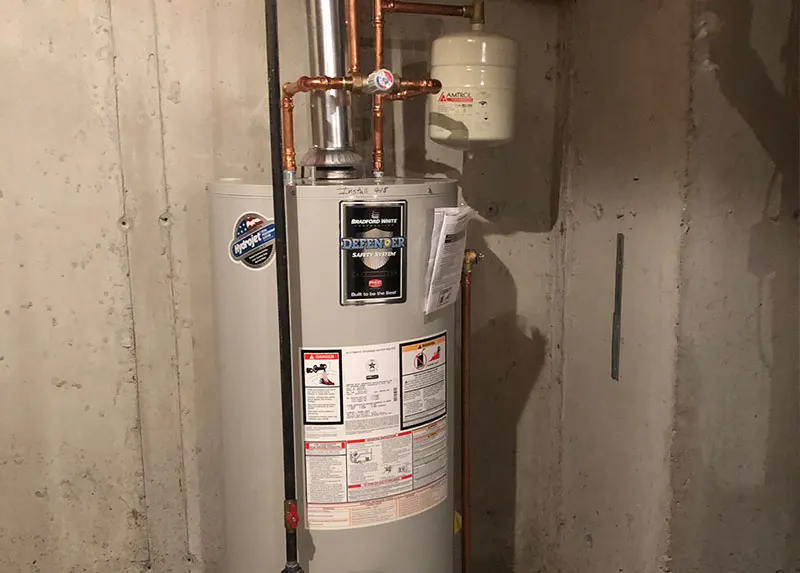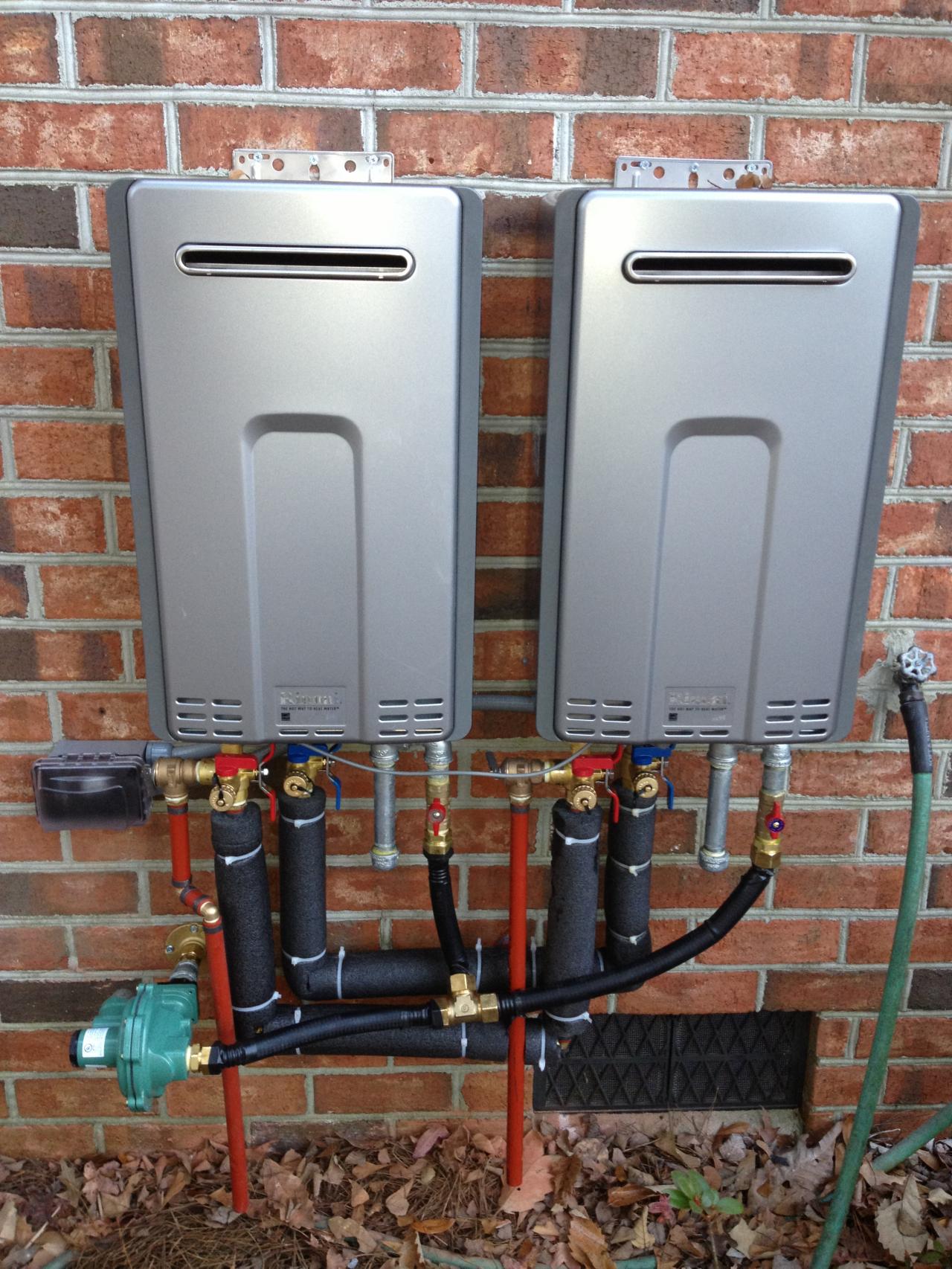Top-Rated Plumber Denton Offering Affordable Plumbing Services You Can Trust
Top-Rated Plumber Denton Offering Affordable Plumbing Services You Can Trust
Blog Article
Complete Guide to Water Heating SystemInstallation and Replacement
Recognizing the intricacies of hot water heater installment and replacement is vital for homeowners seeking to make sure performance and reliability in their warm water supply. From picking the suitable kind and dimension to carrying out a smooth installation process, a number of variables should be thought about to stay clear of common mistakes. This overview will provide you with the required steps and insights to navigate the complexities of this home improvement task, while additionally emphasizing essential maintenance methods that can extend the life of your system. As you check out these facets, you might locate on your own reassessing your present configuration and identifying locations for enhancement.
Sorts Of Water Heating Systems
When thinking about hot water heater installation and substitute, it is important to comprehend the numerous kinds of hot water heater available on the market. One of the most common kinds include container water heating systems, tankless water heaters, heatpump water heating units, and solar water heaters.
Tank water heating units are typical systems that store a certain volume of warm water, making them easily offered when required. In comparison, tankless water heating units supply warm water on demand, getting rid of the need for storage space.
Heatpump water heating systems use power to move warm from the air or ground to warm water, using substantial power savings however requiring even more space and specific installation conditions. Solar water heaters harness solar power to warmth water, giving a green option with prospective lasting cost financial savings, although they usually require a backup system for cloudy days.
Recognizing these alternatives makes certain notified choices concerning setup and substitute, satisfying specific demands and choices.
Selecting the Right Size
Picking the proper dimension for a water heating unit is essential to ensure ideal efficiency and performance. A system that is too tiny will certainly have a hard time to fulfill family demands, leading to inconsistent hot water availability and increased energy consumption. Alternatively, an extra-large water heater can lead to unnecessary energy waste and higher energy expenses.
To identify the right dimension, consider the family's peak warm water usage. This can be determined based upon the variety of occupants and their typical warm water requirements. As an example, a family of 4 may require a hot water heater with a capability of 50 to 80 gallons, relying on the usage patterns, such as simultaneous showers and washing.
Additionally, assess the recuperation price, which determines exactly how swiftly a heating unit can replenish hot water after it has been utilized. For tankless models, emphasis on the flow rate, measured in gallons per min (GPM), to guarantee it fulfills the house's synchronised need.
:max_bytes(150000):strip_icc()/installing-an-expansion-tank-2719066-hero-375405ad9eaa426a880e3ed978ba00f5.jpg)
Setup Refine Review

Next, the view old unit needs to be separated and eliminated, taking treatment to adhere to neighborhood codes and laws pertaining to disposal. Once the old unit is out, the brand-new water heating unit can be positioned in area. This step entails connecting the supply of water lines, making sure that all fittings are leak-free and protected.
After establishing water links, it's vital to link the power supply, whether electrical or gas, following the maker's instructions thoroughly. Once all connections are made, the system needs to be loaded with water, and the power can be transformed back on. Finally, it is necessary to check for leaks and make certain the water heating unit is operating correctly before finishing the installment process.
Usual Installation Errors

An additional constant blunder is neglecting to comply with regional codes and regulations. Falling short to stick to these criteria can not just lead to security hazards yet may additionally lead to costly fines or the demand for costly reinstallation. In addition, improper airing vent is a crucial issue. Insufficient air flow can create harmful gas build-up, posing severe wellness risks.
Incorrect plumbing links are additionally a widespread mistake. Stopping working to safeguard connections or utilizing the incorrect sort of fittings can result in leakages and water damages. Additionally, ignoring the relevance of a proper drainpipe frying pan can lead to substantial water damages if leakages do take place. Last but not least, poor insulation of pipelines can bring about warmth loss, minimizing performance. By avoiding these common installation mistakes, property owners can ensure their Learn More Here hot water heater runs securely and effectively, maximizing performance and long life.
Upkeep Tips for Longevity
Correct upkeep of a hot water heater is vital for its longevity and optimum performance. Regular inspections and maintenance can protect against expensive repair work and prolong the appliance's lifespan. Begin by checking the temperature level setup; it must commonly be established between 120 ° F and 140 ° F for ideal power efficiency and security.
Every six months, purge the container to get rid of debris accumulation, which can hinder heating effectiveness and create corrosion. To do this, transform off the heating unit, attach a tube to the drain valve, and let the water run till it is clear.
When they are corroded,Anode rods need to be examined each year and replaced. These poles help protect against storage tank corrosion by bring in corrosive aspects in the water.
Furthermore, examine the stress relief shutoff frequently to ensure it is functioning appropriately. This valve is crucial for protecting against too much stress accumulation within the container.
Lastly, think about setting up a specialist upkeep check every few years for complete examinations and maintenance. By adhering to these maintenance tips, property owners can substantially boost the performance, safety and security, and lifespan of their hot water heater, making sure trusted warm water for several years ahead.
Conclusion
Finally, appropriate setup and maintenance of water heating units are important for ensuring effectiveness and durability (pipe repair). Choosing the suitable kind and dimension, sticking to installation guidelines, and avoiding common mistakes considerably contribute to ideal efficiency. Normal upkeep checks and professional servicing help sustain performance and protect against costly fixings. By understanding these essential facets, house owners can achieve a reputable warm water supply while minimizing possible issues related to hot water heater operation.
Recognizing the complexities of water heating system setup and substitute is important for homeowners seeking to guarantee efficiency and dependability in their warm water supply.Storage tank water heating systems are traditional systems that save a specific volume of warm water, making them conveniently available when needed. In comparison, tankless water heaters offer warm water on need, eliminating the requirement for storage space. Selecting a water heater that is either also tiny or too big can lead to inadequacies, resulting in inadequate hot water supply or extreme power consumption.
By comprehending these essential elements, house owners can attain a reputable warm water supply while reducing possible issues connected to water heater procedure. pipe repair.
Report this page